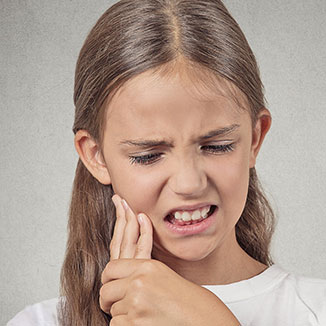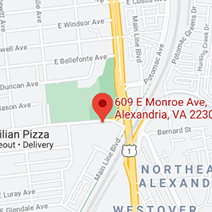Pediatric Dental Emergencies
If your child faces a dental emergency, give us a call immediately. If it is serious enough, we may instruct you to visit an emergency room. If you need urgent treatment after hours, please call our office and follow the prompts for the on-call dentist. We are always here to assist when your child’s dental health is at risk.
The first thing to remember is to stay calm. Injuries to the mouth, face and teeth happen frequently in children. Remaining calm and taking prompt action will help minimize the damaging effects of the injury, and lessen your child’s discomfort.
Below are tips on dealing with urgent dental situations; you may want to display this list on your refrigerator or store it near your emergency phone numbers for easy reference.
Toothache
Call us and visit the office promptly. To comfort your child, rinse the mouth with warm water. Over-the-counter children’s pain medication, dosed according to your child’s weight and age, might ease the symptoms. You may apply a cold compress or ice wrapped in a cloth to the face in the area of the pain, but do not put heat or aspirin on the sore area.
Call us for an appointment. If there is severe pain or swelling, take your child to the emergency department at your nearest hospital.
Cut or Bitten Tongue, Lip, or Cheek
If your child has bitten his lip or tongue severely enough to cause bleeding, clean the bite gently with water and use a cold compress (a cold, wet towel or washcloth pressed firmly against the area) to reduce or avoid swelling. Give us a call to help determine how serious the bite is.
Broken Tooth
Contact us immediately. Quick action can save the tooth, prevent infection and reduce the need for extensive dental treatment. Rinse the mouth with water and apply cold compresses to reduce swelling. If you can find the broken tooth fragment, place it in cold milk or water and bring it with you to our office.
Knocked Out Permanent Tooth
When you find the tooth, try to only hold it by the crown (top), not the root. Rinse the tooth ONLY if you can see dirt on it. Attempt to reinsert the tooth back into the socket. Have your child bite on a clean gauze or cloth to keep it in place. If you are unable to reinsert the tooth, carry it in a cup containing milk until you get to our office. If milk is unavailable place the tooth in human saliva until you reach our office. Call us IMMEDIATELY. The quicker the tooth is re-implanted, the better the odds of saving it.
Knocked Out Baby Tooth
It is not recommended to reinsert a baby tooth that has been knocked out. However, you need to contact us to schedule an appointment to verify that the entire tooth came out, and that no other teeth were affected by the injury.
Bleeding After a Baby Tooth Falls Out
Fold a piece of gauze or cloth and place it over the area with firm pressure. Have your child bite the gauze for 15 minutes. Repeat if needed. If the bleeding continues, call us.
Possible Broken Jaw
If you know or suspect your child has sustained a broken jaw, use a cold compress to reduce swelling. Go to the emergency room immediately. In many cases a broken jaw is the result of a blow to the head. Severe blows to the head can be dangerous and even life-threatening.
Possible Head Injuries
You need immediate medical attention. A severe head injury can be life-threatening. Keep in mind that an emergency medical team might be able to reach you by ambulance faster than you can get to the hospital.
Cold or Canker Sores
Over-the-counter medications will usually provide temporary relief. If sores persist, call us to schedule an appointment.
Object Caught In Teeth
If your child has something caught between his teeth, use dental floss to gently remove it. Never use a metal, plastic, or sharp tool to remove a stuck object. If you are unable to remove the item with dental floss, give us a call.
Loose Tooth
If your child has a very loose tooth, it should be removed to avoid being swallowed or inhaled. Call us if you need help with this.
Avoiding Injury
Your child’s risk for dental injuries can be reduced greatly by following a few simple suggestions.
- Reduce risk for severe oral injury in sports by wearing protective gear, including a mouthguard. Ask us about creating a custom-fitted mouthguard for your child.
- Always use a car seat for young children and require seat belts for everyone else in the car.
- Child-proof your home to prevent falls and electrical injuries.
- Regular dental checkups provide us an opportunity to discuss additional age-appropriate preventive strategies with you and your child and can help your child avoid dental injuries.
- Don’t let your child chew on ice, popcorn kernels, or other hard foods.




